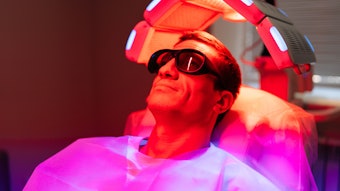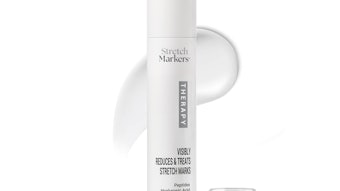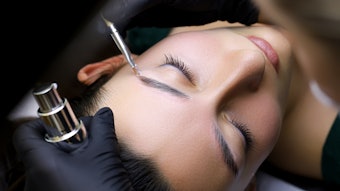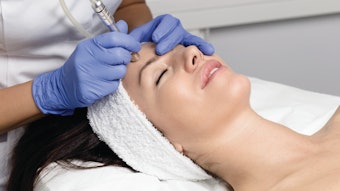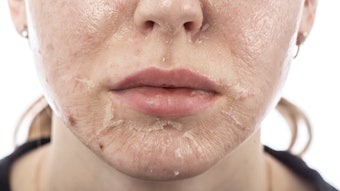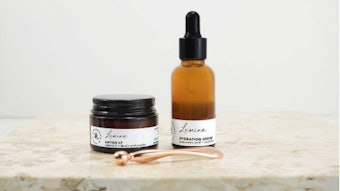If you have clients that suffer from rosacea, this news piece may offer insight into the challenges they face and may help you provide the best service possible for this type of client.
From job interviews to first dates, creating a positive and lasting first impression often goes a long way. For women with symptoms of the common skin condition rosacea, just how much does the appearance of their skin affect how people perceive them? A unique digital perception survey, developed in partnership with the National Rosacea Society (NRS) and Galderma Laboratories, contrasted images of women with signs of mild to moderate papular/pustular rosacea (an inflammatory skin condition characterized by redness, bumps and blemishes) and images of women with clear skin. The survey was taken by 1,009 members of the general population and 502 women with rosacea, equaling 1,511 survey respondents in total. In the survey, adults were asked to give their opinions of women based solely on photographs of their faces: half of the photographs featured the women with clear skin and half of the photographs were digitally enhanced to simulate rosacea symptoms on their faces. The survey found that based on first impressions of the images, when it comes to attributes such as confidence, attitude and intelligence, women with rosacea symptoms were consistently ranked differently than their clear-skinned counterparts.
The results, which are part of the national educational campaign Rosacea SKINsights sponsored by Galderma Laboratories, also reveal the lengths that women with rosacea would go to if they could get rid of their rosacea forever, and highlight the low awareness and complicated diagnosis path for this common condition. On average, women with rosacea waited at least seven months before receiving a correct diagnosis, and only half of respondents had ever heard of the condition upon the time of diagnosis. This reveals the high level of misunderstanding and confusion that surrounds rosacea, a chronic disorder primarily of the facial skin, often characterized by flare-ups and remissions.
Health and personality traits
According to survey results, women with rosacea are more likely than women without the skin condition to be perceived by others among the general population as looking unhealthy (11% vs. 2%) and tired (43% vs. 32%). Survey respondents also formed personality judgments about women with pustular/papular rosacea, describing them as more likely to be insecure (33% vs. 13%) and shy (34% vs. 18%) than their counterparts. In contrast, women with clear skin were more commonly perceived as having positive social characteristics such as confidence (49% vs. 27%) and happiness (54% vs. 36%).
The appearance of rosacea also influenced survey respondents' perceptions of important personal characteristics that could negatively impact how rosacea sufferers are viewed in the workplace. Compared to women with clear skin, women with rosacea symptoms were considered to be less intelligent (36% vs. 43%) and not as successful (18% vs. 32%). Women with rosacea symptoms were also perceived to be more stressed (40% vs. 23%) and more likely to have entry-level positions (22% vs. 11%).
Less lucky in love
Career and personality traits were not the only perceived source of disparity between women with rosacea and those without – survey results show that Americans thought that women with rosacea were less lucky in love, including less likely to be in a relationship (64% vs. 81%) and less likely to go on weekend dates (14% vs. 22%).One in five women (19%) with rosacea surveyed would even rather have clear and smooth skin than an eternally fulfilling love life.
Clear skin
The women with rosacea who participated in the survey judged rosacea as the negative focal point of their faces. In order to achieve clear skin, women with rosacea said they would be willing to forgo wearing makeup (33%), exercising (22%) and watching television for one year (21%).They would also give up eating chocolate (44%) and dating (25%) for one year if that meant that they did not have to deal with their skin condition on a daily basis. Lastly, despite today's challenging economic environment, women with rosacea would pay an average of nearly $6,000 and 14% would reduce their income by 10% for five years, to have clear and smooth skin forever. Nine percent would choose clear skin over being financially well off for life.
"The survey results confirm that rosacea can have a strong impact on people professionally, socially and romantically," said Samuel Huff, executive director of the National Rosacea Society. "The National Rosacea Society urges people to educate themselves about this widespread, yet often misunderstood disease, and encourages anyone who thinks they may have rosacea to see a dermatologist to receive a timely diagnosis and appropriate therapy."
"Unfortunately, many people with rosacea do not recognize the symptoms and often mistake their rosacea for another skin condition; therefore they are not taking advantage of the effective medical solutions that are available," said Doris Day, MD, dermatologist and clinical assistant professor of dermatology at the New York University Langone Medical Center. "Without proper treatment, rosacea flare-ups can progressively worsen so it is critical to visit a doctor for an accurate diagnosis. Your skin's appearance can be a prominent factor in how you perceive yourself and how others perceive you, so it is very important that everyone takes control of their skin and puts their best face forward."
